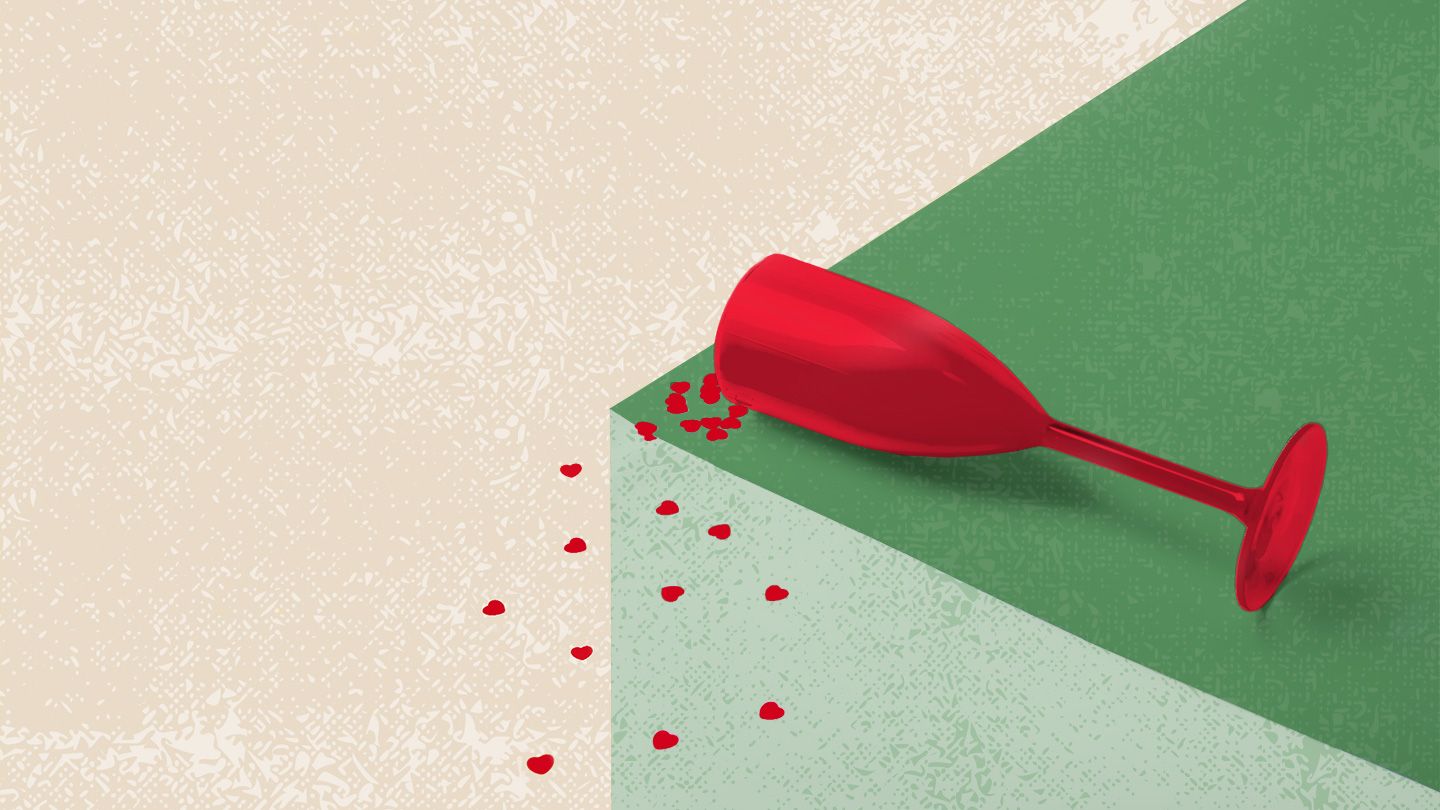With full social calendars and increased stress, it’s no surprise that people drink more during the holidays than any other time of the year. But those extra drinks can be hard on the body, and even lead to a condition called holiday heart syndrome.
Holiday Heart Syndrome and Atrial Fibrillation
Holiday heart syndrome typically occurs in people who do not have existing heart disease. But whether drinking too much alcohol triggers an isolated afib episode, or actually leads to new onset atrial fibrillation, depends on a lot of factors, says Rakesh Gopinathannair, MD, a cardiac electrophysiologist with the Kansas City Heart Rhythm Institute in Missouri.
“Afib is the most common heart rhythm disturbance, and high blood pressure, sleep apnea, and being 65 or older all factor in to whether or not a particular person who is drinking heavily will get these particular rhythm issues,” says Dr. Gopinathannair. He adds that it isn’t clear how common holiday heart syndrome is, since many people who experience the condition often don’t see a doctor.
Because drinking is so embedded in American culture, the general population often doesn’t recognize the true effect that alcohol has on the body, says Kristen Brown, MD, an interventional cardiologist at Cardiology PC, a cardiac center in Birmingham, Alabama.
That’s especially true for people with underlying heart disease, but alcohol takes a toll even on people without a history of cardiovascular disease.
Why Binge Drinking Triggers Atrial Fibrillation
But even one or two drinks will raise a person’s blood alcohol level, which can impact the heart’s natural rhythm and increase the risk of holiday heart syndrome.
Because drinking isn’t the only lifestyle change that can happen at holiday time, it can be unclear if other factors may be driving afib episodes. In one study, alcohol’s role was confirmed when researchers looked at 446 people and examined several lifestyle factors that could trigger afib, including drinking caffeine, sleep deprivation, dehydration, eating large meals, exercise, laying on the left side of the body, and drinking alcohol.
- Disruption of Heart Cell Function When you drink heavily, alcohol affects the heart cells (called cardiac myocytes) and can cause an imbalance in calcium levels inside these cells. Calcium plays a key role in how the heart contracts and relaxes, but an episode of heavy drinking can cause too much calcium to build up during the phase when the heart should be resting. This can create extra electrical signals (called “after depolarizations”), which can trigger abnormal heart rhythms, like afib.
- Impact on the Heart’s Electrical System The heart has its own electrical system that keeps the rhythm steady. Alcohol can disrupt this system and cause the sympathetic nervous system (the fight-or-flight response) to become overactive and shorten the time the heart needs to recover between beats. This increases the chance that irregular heart rhythms will develop.
- Dehydration and Electrolyte Imbalance. Alcohol is a diuretic, which means it can make you urinate more, and that can lead to dehydration. This can disturb the balance of minerals (electrolytes) like potassium and calcium, which help maintain the heart’s electrical stability. When these electrolytes are out of balance, it can make the heart fire off electrical signals at the wrong time, again increasing the risk of afib.
What Does Holiday Heart Syndrome Feel Like?
- Irregular heartbeat
- Heart palpitations
- Lightheadedness
- Extreme fatigue
- Shortness of breath
- Chest pain
But sometimes symptoms can also go unnoticed and lead to a big heart event later on, says Dr. Brown.
“During afib, blood is turbulent in the heart, and when that happens, the blood is more likely to clot. If a clot develops in the left side of the heart, it can travel to the brain, limbs, or organs and cause an ischemic stroke,” she says.
- Age 65 or older, with greater increased risk for ages 75 and over
- Female
- Diabetes
- Heart failure
- High blood pressure
- History of stroke or heart attack
- Peripheral arterial disease (PAD)
Treatment for Holiday Heart Syndrome
To address holiday heart syndrome, Gopinathannair says to avoid drinking immediately.
“Once you abstain from alcohol, basically treatment would be hydration and getting electrolytes. The majority of the cases of atrial fibrillation during holiday heart syndrome stop on their own, but there is always the risk of future episodes,” he says.
Treatments to Lower Stroke Risk
“One episode of atrial fibrillation also puts you at a higher risk for recurrent afib, which then puts you at a higher risk for heart failure,” she says.
How to Avoid Holiday Heart Syndrome
With a little planning, you can avoid holiday heart syndrome and still enjoy the holidays.
Here are a few tips to keep your heart healthy:
Make healthy lifestyle choices. Other habits play a key role too, such as stopping smoking, eating a heart-healthy diet, adding mindfulness into your routine, getting at least 150 minutes of exercise per week, and managing stress in healthy ways.
“People aren’t going to completely give up drinking, but excessive amounts of alcohol can have big effects on the brain, kidneys, and heart,” says Brown. To put your best holiday heart forward, she says, “The main lesson here is just to limit alcohol use.”
Additional reporting by Becky Upham.
The Takeaway
- Even one episode of heavy drinking can trigger holiday heart syndrome, leading to atrial fibrillation (afib), an irregular heartbeat, and potential long-term heart complications.
- People who have afib that doesn’t resolve on its own may require hospitalization, taking blood thinners, or even procedures like ablation.
- Reducing alcohol intake, limiting fatty and processed foods, and staying hydrated can significantly reduce the risk of developing holiday heart syndrome.
Read the full article here




